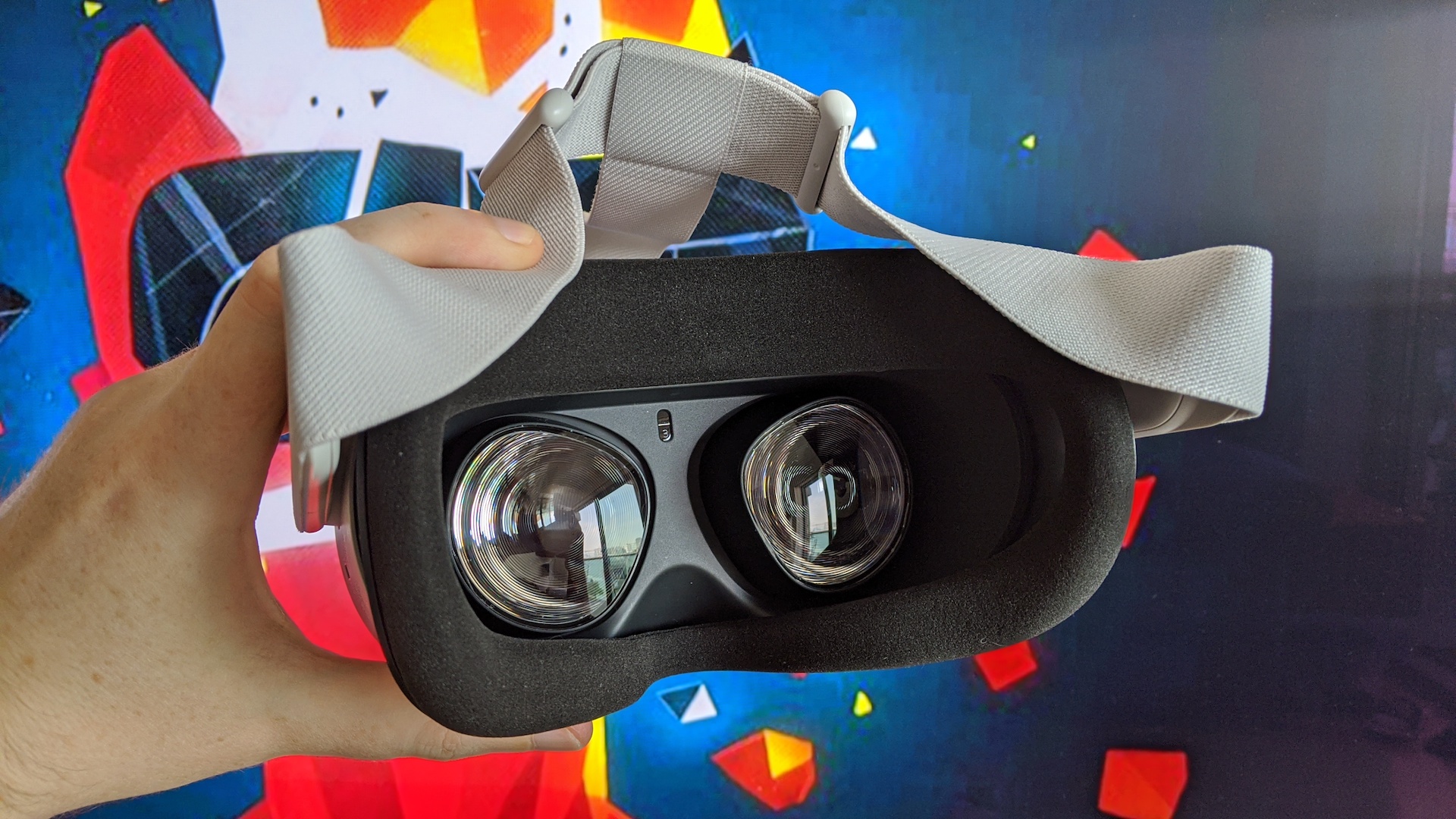Oculus Quest VR games are being ported into AR – and the results are incredible

Sign up for breaking news, reviews, opinion, top tech deals, and more.
You are now subscribed
Your newsletter sign-up was successful
Oculus Quest 2 devices could be about to change the game for augmented reality (AR) technology.
Ever since the monumental success of Pokémon Go in 2016, companies around the world have been working hard to improve – and develop applications for – mixed reality experiences that combine real-world environments with virtual objects.
Pokémon Go developer Niantic told us earlier this year of its plans to introduce an accessible range of tools for prospective AR designers, while the trio of Apple, Samsung and Facebook are all reportedly working on a pair of AR glasses for everyday use.
The latter, though, has also begun applying the technology in its existing VR hardware. Facebook has added a new feature to the Oculus Quest 2 which allows developers to create mixed reality experiences using the headset’s cameras – and we’re starting to see just how important this could be for the future of gaming.
- Everything we know about the Oculus Quest 3
- Oculus Quest will work with Steam Deck for VR on the go
- The new Oculus Quest 2 boasts better VR value than ever
As per VRScout, developers are already proving the creative potential of Oculus’ new Passthrough API Experimental by applying the feature to brand new VR/AR experiences on the Oculus Quest 2.
For instance, as below, one design team has demonstrated the productivity benefits of AR by creating a round-table office space combining the real-world environment with virtual avatars.

But not only are developers working on entirely new AR experiences like this one, but they’re also porting existing Quest games into AR by merging the real and virtual.
Sign up for breaking news, reviews, opinion, top tech deals, and more.
Developer Field of Vision, for instance, recently released Crazy Kung Fu on the Oculus App Lab, which sees players battling training dummies in VR as part of a workout-driven fitness experience. Using the Passthrough API Experimental, though, Field of Vision has been able to implement the same principle into the real-world – essentially creating a mixed reality dojo for wherever you fancy punching some panels.
The company teased the new experience on Reddit, and it proves that AR integration into systems like the Oculus Quest 2 could be a game-changer for VR.
The same is true of VR puzzle game Gravity Lab, which developer Mark Schramm has turned into another mixed reality experience powered by the Passthrough API Experimental.
In a similar Reddit post, Schramm demonstrates being able to freely walk around his virtual environment without having to worry about knocking into any real-world objects.
Analysis: A hybrid strategy
Essentially, then, this means the integration of AR into the world of VR gaming – on Oculus devices, at least – won’t be stagnated by a lack of brand new, AR-exclusive titles at launch.
If existing VR games are compatible with the new technology in this way, there’s no reason why we won’t see a slew of already-popular Oculus titles get the same AR treatment in the months to come.
As for where AR might be beneficial elsewhere, those aforementioned applications like mixed reality office spaces seem a logical and practical extension of the technology. But we could also see AR become integrated into more traditional fitness experiences like running or boxing, with virtual landscapes or opponents superimposed into your real environment.
The possibilities, it seems, are endless, and judging by the success of Facebook’s new tool in just the first few weeks of its arrival, the future looks bright for AR technology.
Oh, and the Oculus Quest 3 is now a much more exciting proposition, too...
Via VRScout

Axel is TechRadar's Phones Editor, reporting on everything from the latest Apple developments to newest AI breakthroughs as part of the site's Mobile Computing vertical. Having previously written for publications including Esquire and FourFourTwo, Axel is well-versed in the applications of technology beyond the desktop, and his coverage extends from general reporting and analysis to in-depth interviews and opinion.
Axel studied for a degree in English Literature at the University of Warwick before joining TechRadar in 2020, where he earned an NCTJ qualification as part of the company’s inaugural digital training scheme.